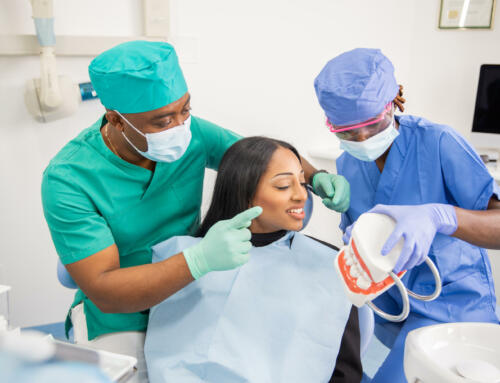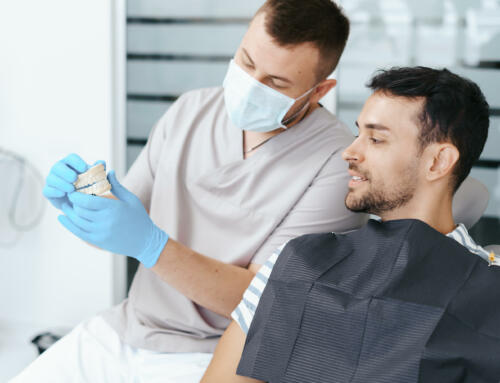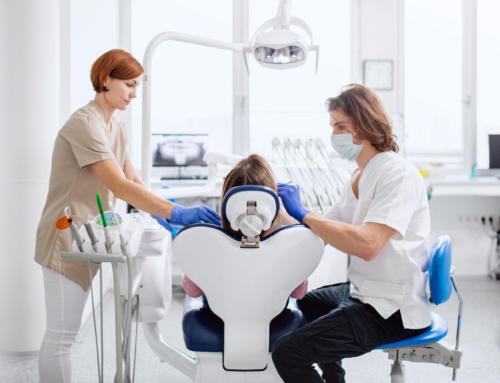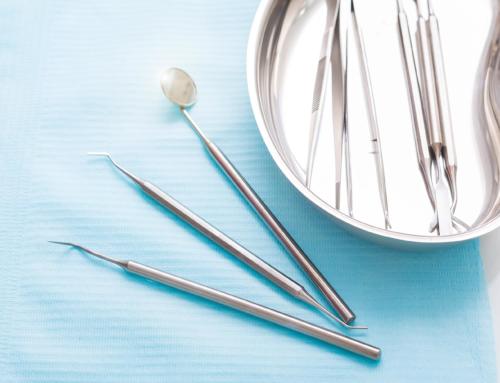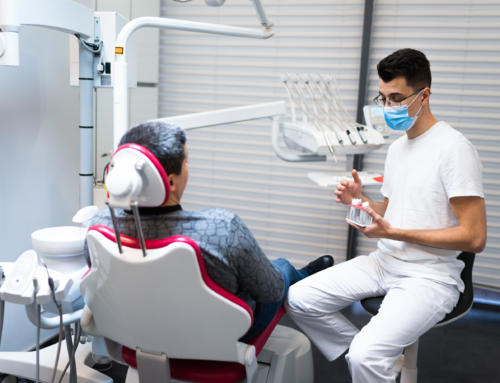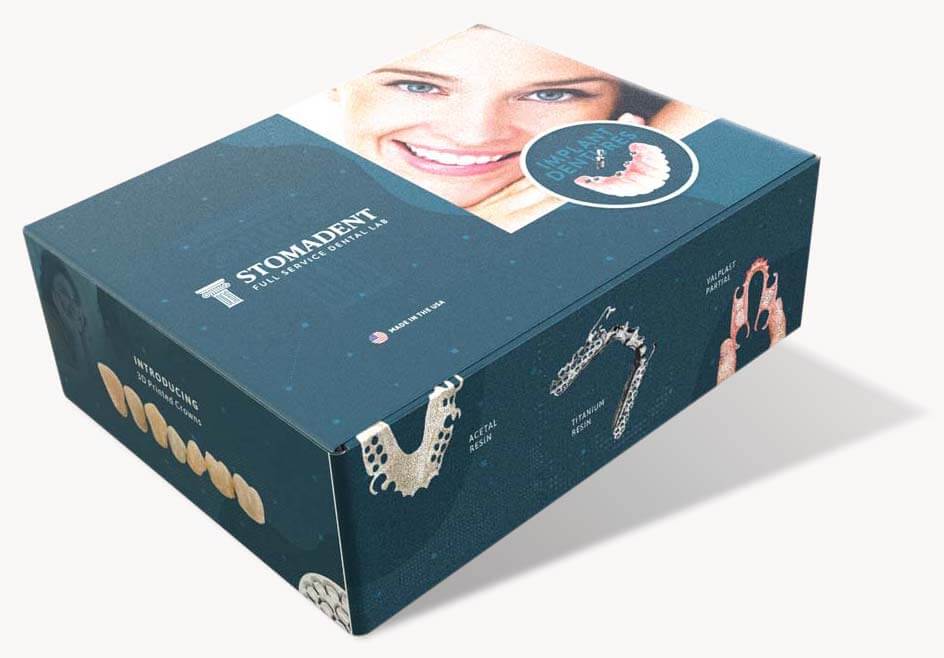
By David Hudnall, DMD
Regular denture maintenance is an essential preventive process that every dentist wishes that all patients took seriously. Unfortunately, many patients falsely believe that if they no longer have natural teeth, they don’t need to see a dental professional unless they have a problem. Or they believe that at-home denture repair kits or self denture relining can help them fix dentures all on their own – a recipe for disaster. By seeing the dentist annually, many problems can be addressed early or be prevented entirely, saving the patient money, time, and frustration in the long-run.
Types of Denture Repair
Regular denture maintenance is an essential part of diagnosis and early detection that allows the dentist or denturist to determine when it is appropriate to perform an adjustment, reline, or a rebase in order to improve patient comfort and extend the life of dentures. We will discuss each denture repair type in greater detail:
Denture Adjustments
Although technically not considered a denture repair, many common denture issues are solved with minor adjustments. It is completely normal for new dentures to require one or more adjustments, especially shortly after delivery. As time progresses, things happen during normal wear – seeds get under dentures and rub sores on the gums, dentures settle, the topography of the tissue changes slightly – necessitating minor denture refinement to improve the bite or patient comfort. However, if you find yourself performing extensive modifications to the denture or the patient returns repeatedly complaining of discomfort or inability to chew, it is time to look for other solutions.
Denture Reline
A denture reline is a great solution for improving fit and comfort. These denture repairs corrects small inaccuracies between the shape of the tissue and the intaglio surface of the denture, filling in gaps where the denture no longer makes intimate contact with the underlying tissue. In addition to improving fit, a reline can also help to extend the life of a denture up to a point. However, if the same denture has been relined more than twice, it usually makes more sense to replace the denture rather than repair broken dentures with a limited lifespan.
The reline procedure does have limitations and it will not solve issues associated with the bite. It also will not correct a denture that clearly doesn’t fit the overall shape of the patient’s ridge. If the denture is prevented from contacting most of the underlying tissue or if the bite no longer meshes correctly, the patient needs a new denture.
Denture Rebase
A denture rebase solves two issues with one procedure. It replaces all acrylic material on the existing denture without changing its original occlusal relationship, thereby simultaneously improving the fit and addressing broken dentures or damaged acrylic. This procedure is a good one to have at your disposal although it is infrequently performed because few dentures satisfy all of the required conditions: the denture teeth are not worn, the denture needs to be relined to improve its fit, and the denture acrylic is in poor condition.
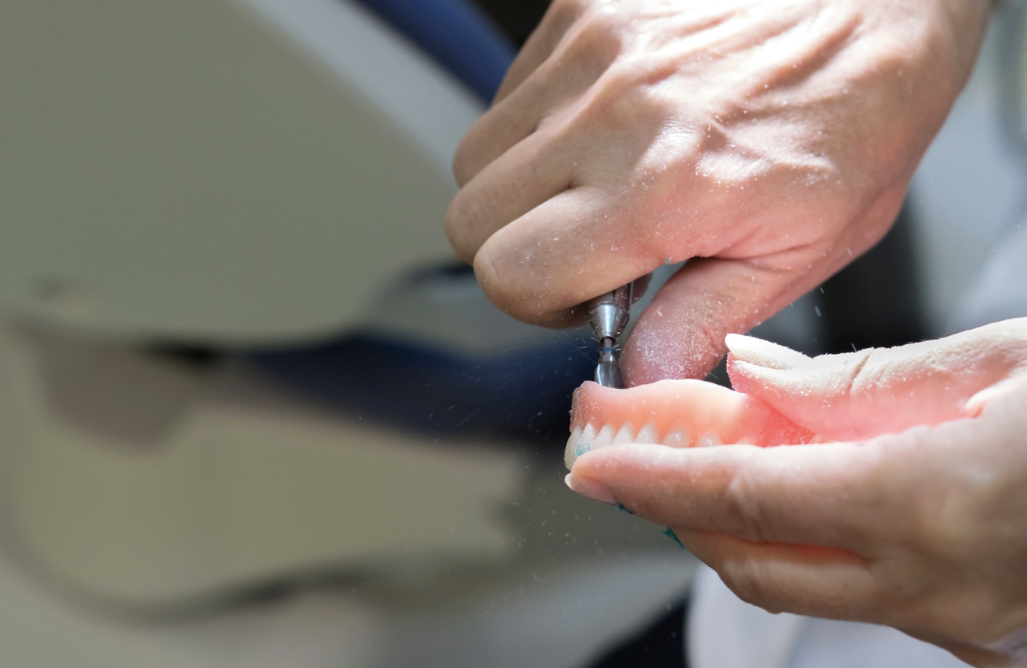
Reasons to Stop Repairing Dentures
When a denture breaks, there is always an underlying reason. Sometimes dentures legitimately break due to flaws created during processing. When this occurs, it usually happens within the first few months after the denture is delivered and the denture should be replaced, rather than repaired, at no charge to the patient. It is not reasonable to expect the patient to bear the cost of broken dentures due to poor workmanship.
Aside from production errors, dentures break for a variety of other reasons. Many times, patients won’t tell you what really happened out of embarrassment. Often, the denture repair appointment becomes a detective show where the dentist must figure out an accurate picture of what caused the denture to break.
Dentures Damaged by Environment
We’ve all seen dentures that have been ruined by external forces: chewed by pets, damaged by children, or that have been run over with a vehicle. Often the patient brings you a bag of assorted pieces that don’t seem to go together at all. Once dentures have suffered this type of abuse, it’s rarely possible to fix them and a new denture must be made.
Sometimes patients will attempt to save themselves money and attempt to repair dentures on their own. This is a bad idea. Few patients do a good job with a home denture repair kit or relines. Most denture wearers don’t assemble the pieces correctly or use an overabundance of denture repair material or glue, rendering the denture unrepairable by even the most skilled lab technician.
Dentures Damaged by Improper Wear
Dentures were meant to be used – not abused. Dentures will break when subjected to extreme forces like cracking walnuts, chewing ice cubes or hard candies, or opening beer bottles. I once worked with a patient who used his dentures to hold a metal fishing hook while he tied the line. Imagine his surprise and lack of understanding when the denture teeth broke away from the acrylic under the force. Using dentures to perform tasks that they were never designed to do often results in unrepairable dentures that must be replaced.
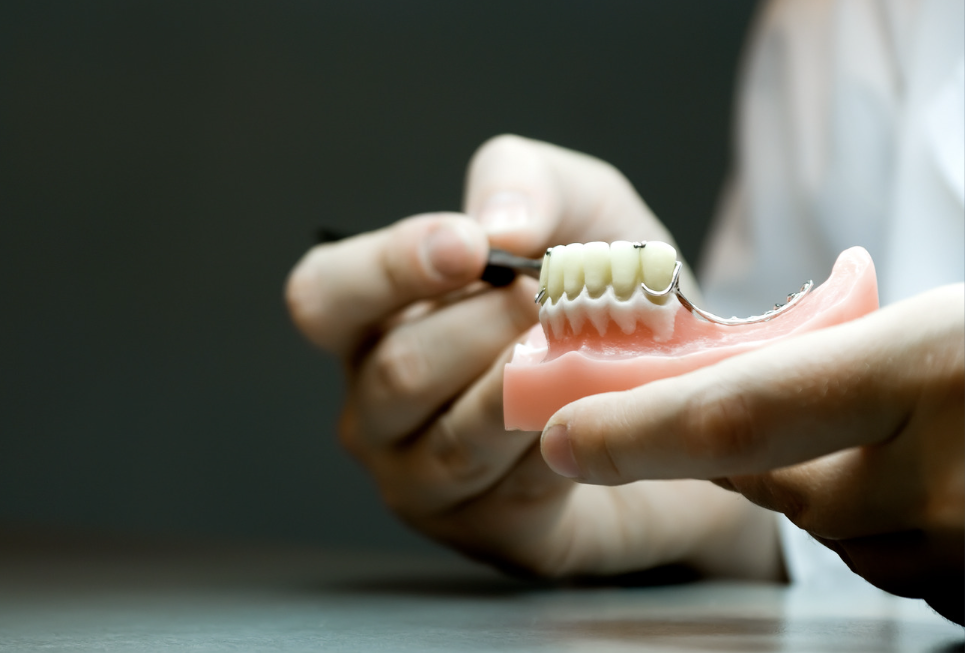
How Often Should Dentures Be Replaced?
Most dental professionals and insurance carriers agree that complete dentures are designed to last on average between five to ten years. Longevity depends upon several factors including how much the patient’s tissue changes with time, the quality of the materials used, and how the dentures are cared for at home. Generally, dentures produced from advanced high-quality PMMA milled resins have fewer imperfections and are more durable than dentures fabricated from basic denture acrylics using traditional boil-out processing methods.
Denture Replacement Process
Replacing a denture that no longer fits well eliminates sources or tissue irritation and the need for denture adhesives. A great-fitting denture starts with accurate impressions – ideally scanned impressions that allow direct integration into the automated laboratory workflow. Dentures designed and manufactured via CAD/CAM create the perfect combination of improved fit and ideal aesthetics while eliminating many of the errors associated with manual processing that require numerous post-production adjustments to correct.
Quality Denture Repair and Replacement at Stomadent
When quality repairs, lab-processed relines, and rebases are of paramount importance, trust Stomadent Dental Laboratory to exceed your expectations. Our technicians take great pride in providing precision workmanship. Our abilities allow us to deliver quality services correctly the first time, saving your dental practice time and creating happy patients. Make a great impression with Stomadent!

